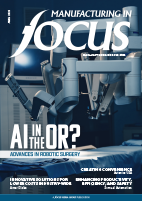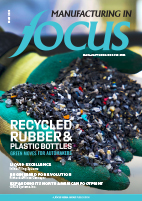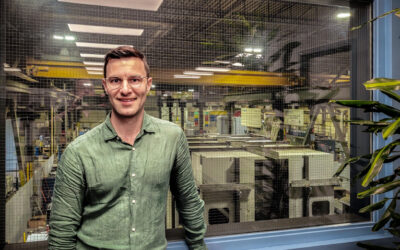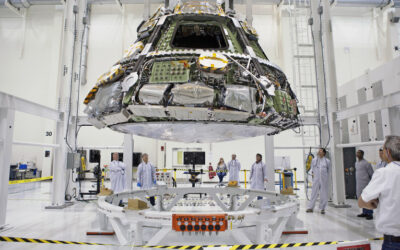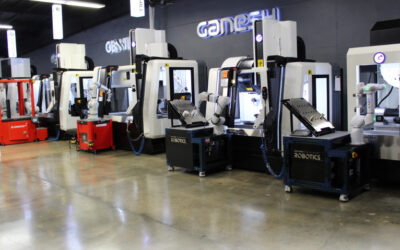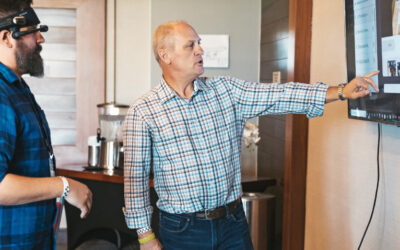The Organization for Economic Co-Operation and Development’s (OECD) Secretary-General, Ángel Gurría has stated: “The coronavirus pandemic is causing large-scale loss of life and severe human suffering. It is a public health crisis without precedent in living memory, which is testing our collective capacity to respond.”
Indeed, society is being tested in a manner the likes of which has not been witnessed since World War II. This is truly a test of collective responsiveness. While nobody can yet say for certain how long this will last, governments and industries must work together to see that this pandemic fades into the annals of history, hopefully never to return.
All industries are in jeopardy, but many are rising to help citizens. Manufacturing, in particular, is not complacent and is working diligently much as it did decades ago. But the task of defeating the virus named COVID-19 will not be easy.
Manufacturers and supply chains will have to remain proactive, adaptable, and creative to produce and distribute the all essential medical supplies and equipment to protect citizens, infected patients, and those most at risk: healthcare workers on the front lines.
That there is a shortage of various medical supplies in North America is common knowledge. What manufacturers need to do – and do swiftly – is to increase production using the tools and resources at their disposal to meet ever-increasing daily demands. Repurposing or re-tooling production lines or exploring alternative manufacturing methods are what many industries, both large and small, have chosen to do.
This is not the time to be competitive. Rather, it is a time to share ideas, communicate, strengthen research and development strategies, and, above all, adopt innovative ideas. Manufacturers from the aerospace, alcohol, automotive, mattress, and sports equipment industries are among many that have begun to produce various life-saving medical supplies and equipment to address shortages and slow the spread of COVID-19.
Global News reported on April 4 that Montreal-based companies are increasing production of medical supplies. Aerospace simulator manufacturer CAE, formerly known as Canadian Aviation Electronics Limited, plans to produce and distribute ten thousand ventilators over the next few months for use in hospitals across Canada. Also, Medicom, a manufacturer of medical-grade personal protective equipment (PPE) such as surgical masks, will double production at its plant in Augusta, Georgia.
Another aerospace industry assisting in this endeavour is the ADGA Group. The company is headquartered in Ottawa and has a focus on defence and security strategies. It also has offices in Quebec and Alberta and will be manufacturing masks and face shields for distribution across the country.
Commitment to the cause is coming from some alcohol producers. PARADE magazine’s April 2 issue listed those that have retooled their distilleries to make hand sanitizer and gels rather than spirits.
Several Canadian companies are featured on the list. In British Columbia, a partnership of Victoria Distillers and Nezza Naturals is producing free hand sanitizer for people in the healthcare industry. Additionally, hand sanitizers are listed as being produced by four distilleries in Ontario and five in Nova Scotia, and this list is by no means comprehensive. Many craft distilleries are also producing and giving away hand sanitizers to first responders and the public at large.
The French spirits giant Pernod Ricard began hand sanitizer production at its distilleries in the United States, announced a Business Wire press release, which added that Bacardi Corporation distillery in Puerto Rico, the world’s largest rum distillery, has partnered with Olein Refinery, also in Puerto Rico, to make disinfectants for hand sanitizer production. These products will be donated to United States postal workers, firefighters, and police.
General Motors and Ford, the largest car manufacturers in the United States, have plans to mass-produce much-needed ventilators over the next few months. The companies have proved successful manufacturing PPE such as surgical masks and face shields, but manufacturing ventilators have some hurdles to be overcome quickly such as obtaining regulatory clearance and developing a workforce and supply chain.
Concerning regulatory compliance, the Food and Drug Administration (FDA) is waiving the rules for automobile manufacturers so that medical devices may be produced more readily. Ventilators will be assembled, largely by hand, at Ford’s facility in Michigan and General Motors’ facility in Indiana, according to an April 5 report from British newspaper The Guardian.
Additionally, Today’s Motor Vehicles magazine reported on March 24 that Fiat Chrysler Automobiles (FCA) is assisting General Motors with ventilator efforts as well as manufacturing and donating protective masks for distribution to healthcare providers, police, and firefighters in the United States, Canada, and Mexico.
An article in the April issue of Canadian manufacturing magazine PLANT declared that mattress manufacturer Tempur Sealy Canada has repurposed some of its manufacturing facility and, in partnership with printing firm Mack Media Incorporated, will be producing protective face shields for Ontario’s frontline healthcare workers.
The International Sleep Products Association (ISPA) headquartered in Alexandria, Virginia, has a global membership with manufacturing facilities throughout the United States. This trade association’s members have responded to the need of healthcare providers and hospitals for medical supplies by manufacturing PPE such as isolation gowns, surgical masks, and privacy curtains as well as hospital beds and mattresses.
In a company press release on April 1, ISPA President Ryan Trainer stated: “Some member companies have immediate supplies of mattresses and beds that can be delivered quickly to areas with the greatest need. Others have capacity to make these products for rapid distribution by the hundreds of thousands.”
Bauer Hockey, the manufacturer of ice hockey equipment and other protective sport and training apparel, has turned its focus toward designing and manufacturing full-face protective shields for frontline healthcare providers. It expects to start shipping face shields within a week to help frontline healthcare workers protect themselves. These shields will be manufactured at the company’s innovation centre in Blainville, Quebec, as well as its facility in Liverpool, New York, The Star newspaper, reported on March 26.
Another sports equipment manufacturer contributing to the PPE efforts is CCM Hockey which will be acquiring half a million surgical masks from its Asian supply chain partners, arranging for transport, and distributing them to where needed by healthcare agencies according to an April 8 article by St. John’s, Newfoundland newspaper The Telegram.
The key to being victorious in this global battle is through cooperation between governments and various industries via incentives, constructive mindsets, and quick action plans as each day, week, and month necessitate. Governments, manufacturers, and citizens have a responsibility to see that normal life once again becomes a reality.



